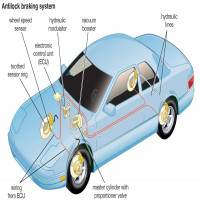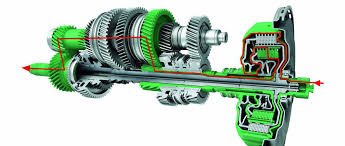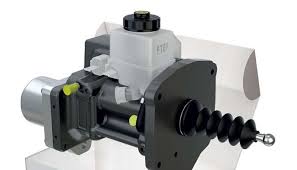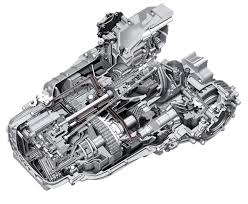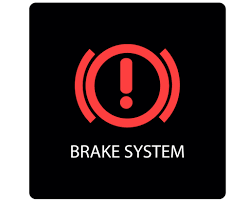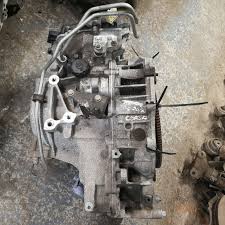Understanding the ABS Module: A Crucial Component for Vehicle Safety
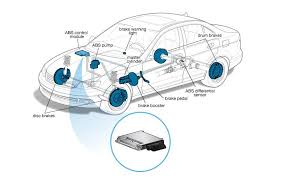
Strong 8k brings an ultra-HD IPTV experience to your living room and your pocket.
The most important part of a modern vehicle’s safety is undoubtedly the ABS module. ABS stands for Anti-lock Braking System, while the ABS module is the brain behind it, because it maintains the car’s control while braking situations. More specifically, it keeps your car steering straight at times of emergency braking, so that your vehicle does not spin and lets you steer off and avoid things that could cause further problems. In this article, we’ll break down all of the information you need on the ABS module, what it actually does, how it works, the benefits of having it in your vehicle, and common symptoms that show if the ABS module is in trouble.
What is the ABS Module?
The ABS module, which is also a computer called an electronic control unit (ECU), continuously monitors the rotational speed of each wheel. To prevent a loss of traction in case the brakes are applied abruptly, it modulates the hydraulic pressure to each brake, making sure the wheels can’t lock up under extreme braking conditions. When ABS detects that one of the wheels is about to lock up, it repeatedly and rapidly releases and reapplies the brakes several times a second, providing better traction to the wheel and the vehicle, while giving back some relative steering control to the driver.
I’d argue that most of the people who know about the antiskid system don’t take the time to understand the component module responsible for its functions: the ABS module. This piece of equipment requires the speed of all four wheels to be sensed by computer, and it uses this data to determine the pressure supplied to each brake of the car. It’s the main adaptive safety feature of the car whose focus lies in safeguarding your vehicle in case of sudden braking and ensuring your ultimate protection from any possible range of circumstances.
How the ABS Module Works
In real-time, the ABS module receives information from several sensors positioned on the car’s wheels. From the speed of the wheels at their various axes, signals are sent to the ABS module. If the system indicates that one or more wheels have significantly slower speeds than the others (which is a signal that those wheels are about to lock), the ABS module engages.
Here’s a step-by-step breakdown of how it works:
Monitor wheel speed: The ABS module monitors the wheel speed at all times using data from the speed detectors for the four wheels.
If it senses that a wheel is about to lock up under braking … the ABS module immediately sends out flex pulses to decrease brake pressure.
Modulating Brake Pressure: The module quickly dips the brake pressure to the affected wheels – usually within about a millisecond. This modulation of braking action keeps the wheel from locking up, maintains the shred of grip it does have, and keeps your car from skidding.
Repeat the Process: This process of measuring and tweaking is repeated many times per second until the vehicle comes to a halt, or until the brakes are released.
Its task is to regulate brake pad pressure, so that wheel lock-up is prevented in the event of emergency braking, keeping control of the steering and reducing the risk of skids and crashes.
Why the ABS Module is Critical for Safety
The anti-lock braking system does not work without the ABS module, because this part is responsible for modulating brake pressure and keeping wheels from locking up during hard braking. This helps vehicles stay under control during emergency manoeuvres, especially when the surface of the road is wet with rain, snow or ice: The benefits are significant if the ABS module is working correctly:
Improved stability: the ABS module makes sure the wheels do not slip and the car does not skid or spin out of control.
Better Steering Control: The ABS module prevents the wheels from locking up, so drivers can keep turning the wheel while braking, which is needed in an emergency to run around obstacles.
Shorter Braking Distance: Sometimes, ABS can decrease stopping distances, particularly on slippery surfaces, where it is typically more difficult to maintain braking control.
Enhanced driver confidence: The knowledge that the ABS module is hard at work to improve brake performance gives drivers peace of mind in poor driving conditions.
Common Symptoms of a Faulty ABS Module
Despite that ABS modules are quite reliable, like most electronic components in a vehicle, they could eventually get faulty or worn out. It’s, therefore, important to be keen on the telltale signs of a failed ABS module to enable you to address the issue fast.
ABS Warning Light: If the ABS module isn’t working correctly, the ABS warning light on your dash will light up. With the light on, the ABS system has failed. Why hasn’t the light come on? It could be a bad sensor, wiring, or the module itself.
Slow Responsive Brakes: If the brake pedal still feels slow to respond to pedal pressure when hard braking, it could mean that the ABS module isn’t operating correctly. An anti-lock braking system could also fail completely, going to the simple type of normal braking without anti-locking braking.
Shuddering brake pedal: Light or normal shuddering of the brake pedal when the car is operating with standard (non-ABS) brakes is common and typically harmless, but constant and unusual shuddering while the vehicle is braking, even lightly, may indicate a faulty ABS module.
Lock-up in normal braking: If under normal braking the wheels do lock up, there is definitely something wrong with the ABS module and the brakes will not provide the normal degree of safety (especially in adverse road conditions).
Variation in Brake Pressure: If the ABS module fails, you’ll notice erratic braking behaviour. The brake pedal could feel hard one moment and soft the next. The change in brake pressure could be a sign of an internal module fault.
What to Do If You Suspect an ABS Module Issue
If any of the above symptoms becomes apparent, get your car into your mechanic ASAP. Having a module go bad puts your vehicle’s safety at risk, not to mention the possibility of crashes directly as a result of a vehicle that cannot stop straight. Generally speaking, a vehicle can be driven (albeit clumsily) without a functioning ABS module, but it will not have that important brake intervention that prevents the wheels from locking up and skidding.
Also, a bad ABS module means you might not pass vehicle safety inspections in states and provinces that have it – it’s now a standard motor vehicle safety feature in most new cars.
Conclusion
The ABS module is a core component of an anti-lock braking system. In an emergency situation where your vehicle needs to come to a stop quickly, the ABS module will be constantly checking the speed of each wheel, adjusting and cycling brake pressure to shorten stop distance and reduce the chances of wheel lock-up by maintaining traction with the road and keeping them spinning so that steering control can be maintained.
With a bit of diligence and periodic observation of the signs of a failing ABS module, you’ll be able to keep your brakes sound and the road safe for you and your fellow drivers. Remember to watch the ABS warning light and pay close attention to your intuition if you see signs of a troubled ABS system. If you suspect any issues at all with your ABS, play it safe and call a mechanic as soon as possible. The proper and on-time maintenance and repair of your ABS module are vital if you want to avoid having your vehicle veer wildly out of control.
Note: IndiBlogHub features both user-submitted and editorial content. We do not verify third-party contributions. Read our Disclaimer and Privacy Policyfor details.

